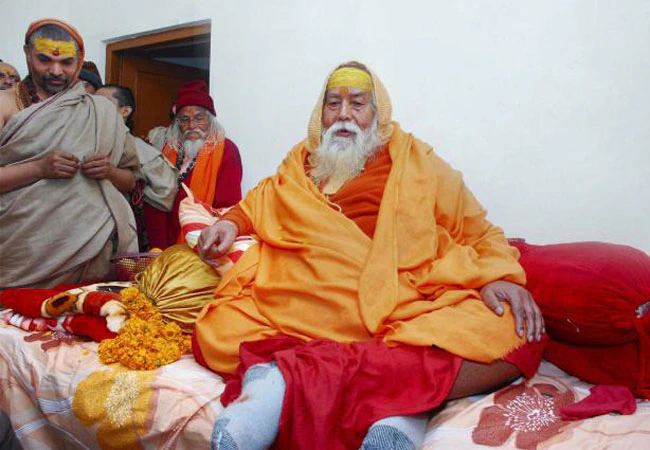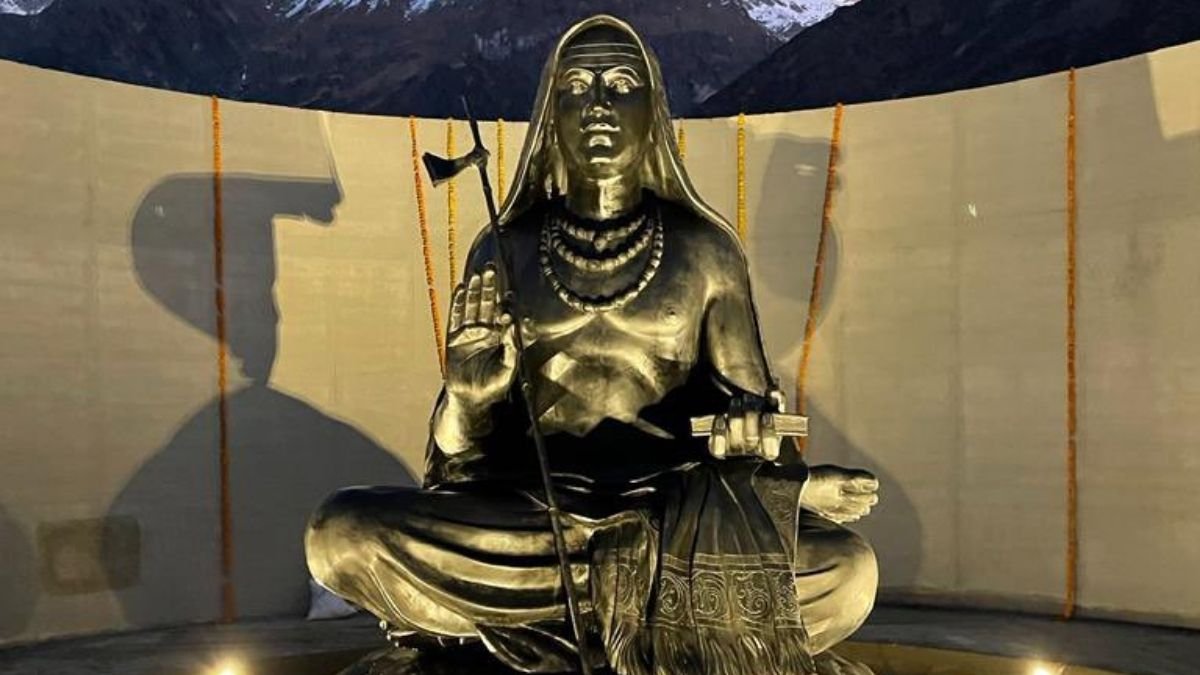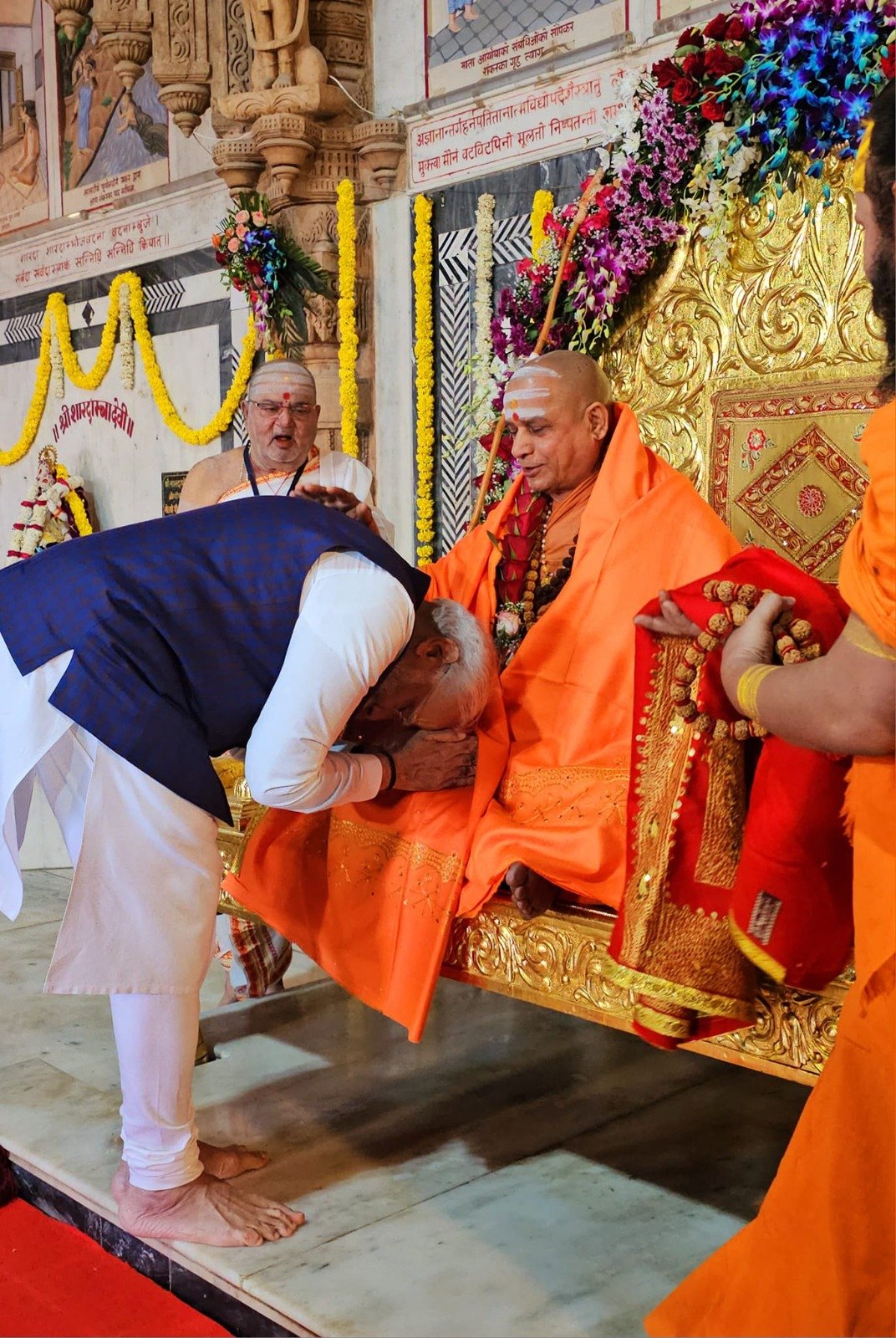In the vibrant tapestry of Indian politics and spirituality, interactions between political leaders and revered spiritual figures often provide insights into the dynamics of respect, mutual support, and occasional divergence. One such prominent interaction recently unfolded between Prime Minister Narendra Modi and Shankaracharya Swami Avimukteshwaranand Saraswati of Jyotirmath.

A Symbolic Gesture of Reverence
The encounter took place during the auspicious ‘Shubh Ashirwad’ ceremony of Anant Ambani and Radhika Merchant in Mumbai, where PM Modi, known for his adherence to traditional customs, approached Shankaracharya Avimukteshwaranand with profound respect, performing the customary ‘Pranaam’. This gesture, deeply rooted in Indian culture, signified Modi’s reverence for the spiritual authority embodied by the Shankaracharya.
In response to this respectful approach, Shankaracharya Avimukteshwaranand expressed a universal principle upheld by spiritual leaders: the obligation to bless and support all who seek their guidance, regardless of political stature. “Narendra Modi ji is not our enemy,” he affirmed in an interview with ANI. “We are his well-wishers and always speak for his welfare.”

The Role of Spiritual Leaders in Public Discourse
Beyond ceremonial blessings, Shankaracharyas like Avimukteshwaranand also bear the responsibility of providing constructive criticism when they perceive deviations from spiritual or ethical norms. This dual role, as both supporters and guides, underscores their commitment to upholding principles while navigating the complexities of modern political landscapes.
Avimukteshwaranand elaborated on this nuanced approach, stating, “If he [PM Modi] makes a mistake, then we also point that out to him.” This statement reflects not only the Shankaracharya’s candidness but also highlights the delicate balance spiritual leaders must maintain between offering unconditional support and exercising moral oversight.
Controversies and Challenges: Navigating Political and Spiritual Boundaries
The relationship between Shankaracharya Avimukteshwaranand and PM Modi has not been without its controversies. Earlier this year, Avimukteshwaranand, along with other Shankaracharyas, raised objections to the timing of the consecration ceremony of the Ram Temple in Ayodhya. Their dissent stemmed from concerns that the ceremony preceded the completion of the temple’s construction, a departure from traditional scriptural practices.
More recently, Avimukteshwaranand voiced skepticism regarding the laying of a foundation stone for a Kedarnath temple in New Delhi. Citing religious scriptures that specify Kedarnath’s sacred location in the Himalayas, the Shankaracharya questioned the appropriateness of constructing a symbolic representation of the temple in the national capital.

The Intersection of Spiritual Guidance and Public Responsibility
The interactions between spiritual leaders like Shankaracharya Avimukteshwaranand and political figures such as PM Modi serve as a microcosm of the broader interplay between spirituality and governance in India. These interactions highlight not only the reverence with which political leaders approach spiritual figures but also the accountability that spiritual leaders uphold in ensuring adherence to traditional values and ethical conduct.
The exchange of blessings and occasional critiques underscores a dynamic where spiritual guidance intersects with public responsibility. It showcases how spiritual leaders, rooted in centuries-old traditions, navigate contemporary challenges while upholding the sanctity of their roles as moral compasses in society.
Conclusion: A Balance of Reverence and Accountability
In conclusion, the relationship between Shankaracharya Avimukteshwaranand and PM Modi offers a compelling glimpse into the intricate dynamics of spirituality and governance in India. It exemplifies a delicate balance where mutual respect coexists with the courage to voice dissent when principles are perceived to be compromised.
As India continues to evolve politically and spiritually, the interactions between political leaders and spiritual figures like Shankaracharyas will continue to shape public discourse and underscore the enduring relevance of traditional wisdom in modern governance.
This nuanced relationship between Shankaracharya and PM Modi serves as a reminder of the enduring bond between spiritual authority and political leadership, where mutual respect and constructive engagement pave the way for a harmonious coexistence of tradition and progress.







